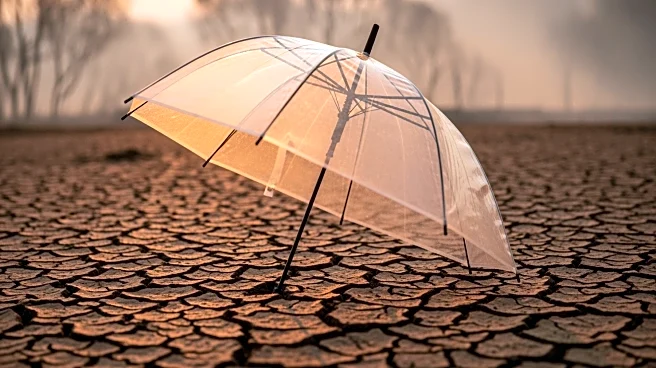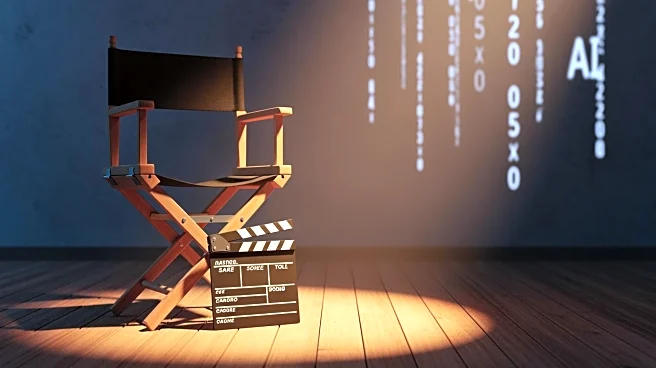What's Happening?
The BBC's outgoing director general, Tim Davie, is set to address staff following President Trump's threat to sue the corporation for $1 billion over a Panorama programme. The controversy stems from a leaked internal memo indicating that the programme misled
viewers by editing parts of Trump's January 6, 2021 speech, suggesting he incited the Capitol Hill riot. Trump demands a full retraction by Friday, claiming the programme made false and defamatory statements. The BBC has acknowledged the error and plans to respond. Davie, who is stepping down, expressed pride in the BBC's journalism despite acknowledging mistakes. The issue is expected to be discussed in the UK Parliament, with Culture Secretary Lisa Nandy likely to make a statement.
Why It's Important?
This legal threat from President Trump highlights ongoing tensions between media outlets and political figures, particularly concerning coverage of sensitive events like the Capitol riot. The lawsuit could have significant implications for media freedom and editorial practices, potentially affecting how news organizations handle political content. The BBC's handling of the situation may influence public trust in media institutions and their perceived biases. The outcome of this dispute could set precedents for future interactions between media entities and political figures, impacting journalistic standards and accountability.
What's Next?
The BBC is expected to formally respond to President Trump's demands, potentially influencing the corporation's editorial policies and practices. The issue will be raised in the UK Parliament, where discussions may lead to broader scrutiny of media bias and accountability. Legal proceedings, if initiated, could involve complex jurisdictional challenges, given the programme's limited availability in the U.S. The situation may prompt other media organizations to review their editorial processes to avoid similar controversies.
Beyond the Headlines
The incident raises questions about the ethical responsibilities of media organizations in accurately representing political figures and events. It underscores the challenges of maintaining impartiality in politically charged environments and the potential consequences of editorial errors. The BBC's response and subsequent actions may influence global perceptions of media integrity and the role of public broadcasters in democratic societies.
















